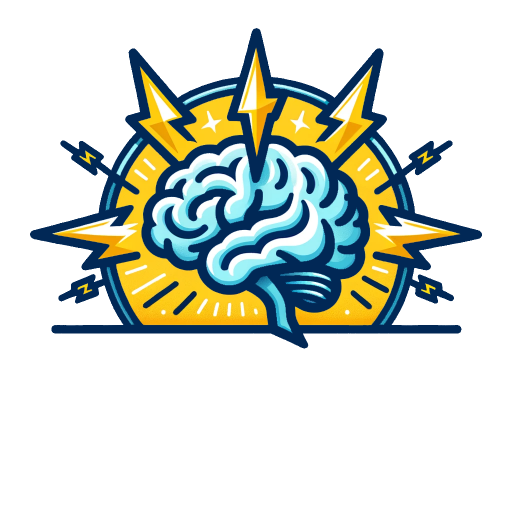Artificial Intelligence (AI) isn’t just for big tech firms anymore. Across every corner of the local economy — from HVAC companies and locksmiths to garage door repair specialists and injury law firms — AI has quietly become a trusted office assistant. It’s automating repetitive work, cutting costs, and freeing business owners to focus on what truly matters: serving their customers.
Below, we’ll explore how specific industries are putting AI to work in their day-to-day operations and how it’s reshaping the way small and mid-sized businesses operate.
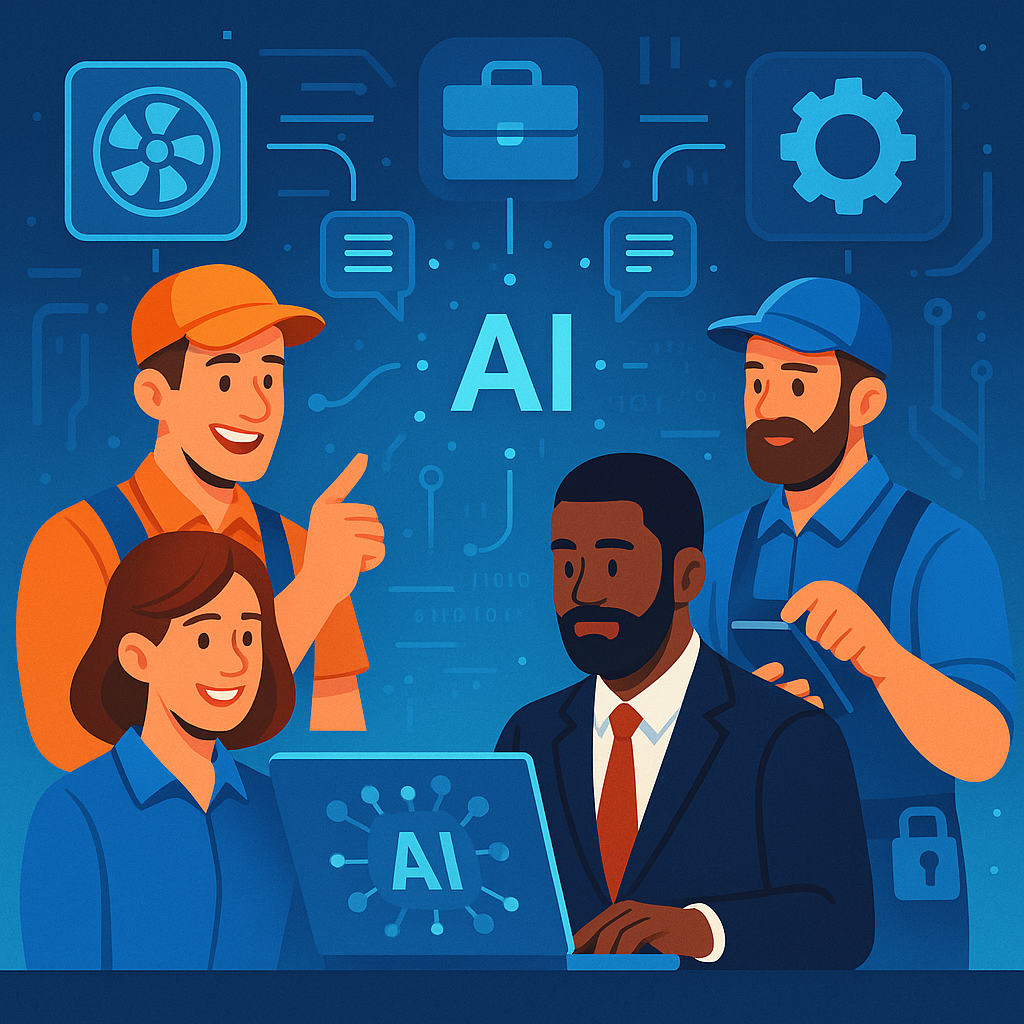
The AI Revolution in Local Business
Until recently, AI tools were either too expensive or too complex for smaller companies. But that’s changed dramatically. Cloud-based platforms, simple integrations, and specialized niche tools have made it possible for nearly every business — even a one-person operation — to streamline admin tasks using automation and machine learning.
Some of the most common administrative functions now powered by AI include:
- Scheduling and calendar management
- Customer intake and communication
- Document drafting and review
- Lead tracking and CRM updates
- Billing and invoicing
- Follow-up reminders and reputation management
For many local entrepreneurs, this means no more endless paperwork, no more missed calls, and no more late-night data entry.
Let’s look at how this plays out across different industries.
How Injury Lawyers Use AI for Administrative Efficiency
Law firms — particularly those specializing in personal injury — are embracing AI faster than most realize. The administrative side of legal work is notoriously time-consuming: drafting demand letters, compiling client documents, scheduling appointments, and keeping communication logs can take up more hours than actual legal analysis.
That’s where AI is changing everything.
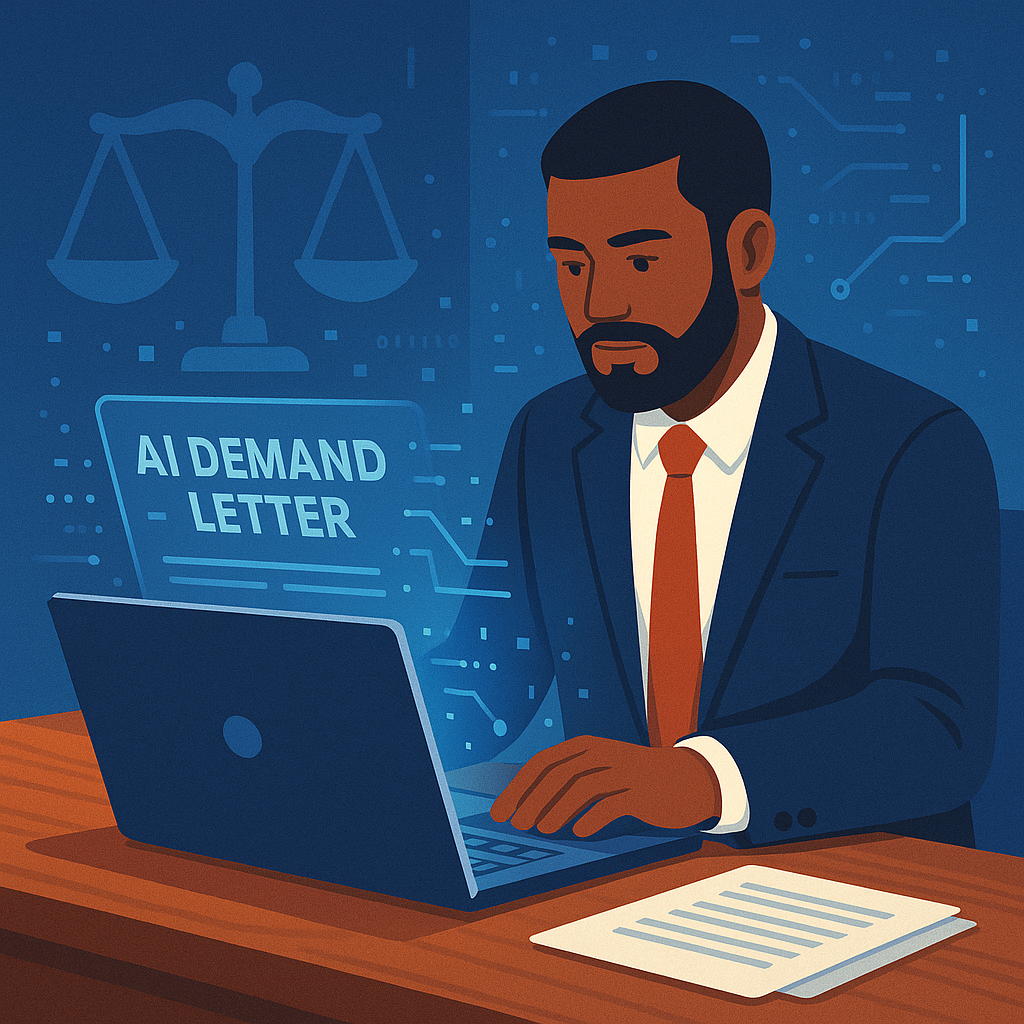
Automating Demand Letters and Documentation
One of the biggest breakthroughs for law firms is AI-driven demand letter generation. Traditionally, these letters — which outline the client’s case, damages, and compensation request — took hours or even days to craft. Now, tools like the best AI demand letter service can create professional, accurate, and data-backed drafts in minutes.
AI demand letter platforms analyze case details, pull relevant legal language, and structure the letter for maximum impact — leaving attorneys to review and personalize rather than start from scratch.
Case Intake and Data Management
AI chatbots and intake assistants are now the first touchpoint for many law firms. They handle client screening, gather details about the accident, injuries, and damages, and even prefill forms for paralegals. This reduces admin costs and shortens client onboarding time dramatically.
Predictive Insights for Settlements
Some firms are using AI to analyze prior settlements and verdict data to estimate potential case values. This helps in negotiations and gives both lawyers and clients more transparency during the process.
Ready to Scale Your Local Business with Smarter Marketing?
At Brainspike Marketing, we help service companies — from injury lawyers to HVAC pros — harness SEO and AI-driven strategies that attract more local customers and automate the busywork.
🚀 Let’s Power Up Your GrowthHow HVAC Companies Use AI to Streamline Operations
HVAC companies have dozens of moving parts — from dispatching technicians and managing service calls to billing and warranty tracking. AI is now quietly orchestrating all of that behind the scenes.
AI Scheduling and Route Optimization
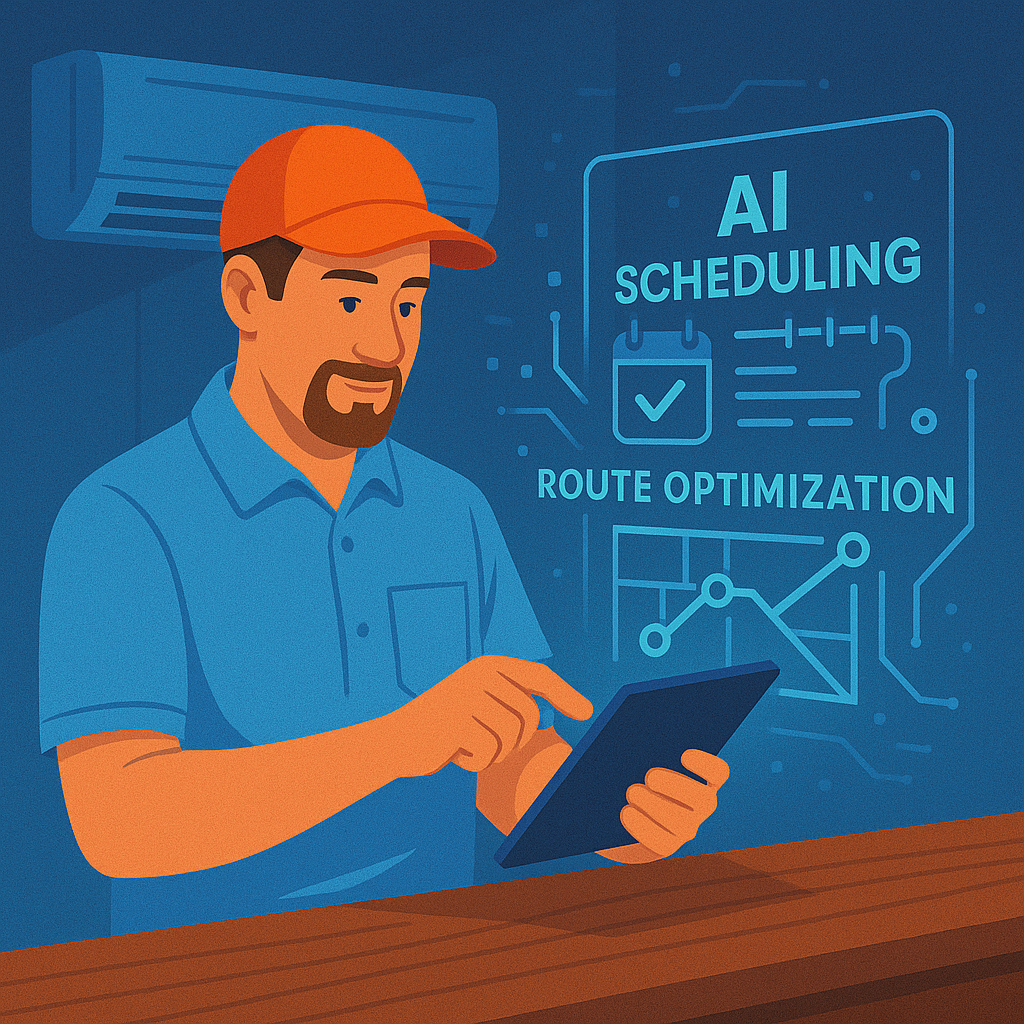
Modern AI scheduling software learns from service patterns, technician availability, and local traffic data to optimize daily routes. This means fewer missed appointments, reduced fuel costs, and faster service response times.
AI-driven tools can even reschedule automatically when a tech runs late or when an emergency repair pops up nearby.
Smart CRM and Lead Follow-up
Many HVAC businesses use AI-enabled CRM systems that track every customer interaction, automatically tag service history, and send out reminders for seasonal tune-ups. Some tools even generate email and SMS campaigns based on past behavior, helping small companies maintain ongoing relationships without a full-time marketing department.
Invoice and Warranty Management
AI document systems now read invoices, match serial numbers, and log warranty information automatically — removing hours of manual entry and reducing errors.
How Garage Door Repair Companies Use AI Every Day
Garage door repair and installation companies are another example of trades leveraging AI quietly but effectively.
AI for Dispatching and Inventory
AI-powered dispatch systems predict demand patterns and automatically assign jobs based on technician skill, location, and time of day. If a customer requests service online, the system instantly checks availability, assigns the nearest tech, and sends automated ETA updates — all without human input.
Inventory tools powered by AI can also track which parts are running low, automatically reorder stock, and forecast what parts will be needed most during certain seasons.
Estimating and Customer Service
When a customer sends photos of a damaged garage door, AI vision tools can now identify the issue, estimate parts and labor, and generate a quote in seconds.
For administrative staff, this removes one of the biggest bottlenecks in the repair process — pricing and quoting.
Locksmith Companies and AI-Driven Admin Efficiency
Locksmiths often handle dozens of small service calls each day — from lockouts to key replacements to security system installations. Each job requires logging, invoicing, and tracking, which used to take hours per week. AI now handles much of it automatically.
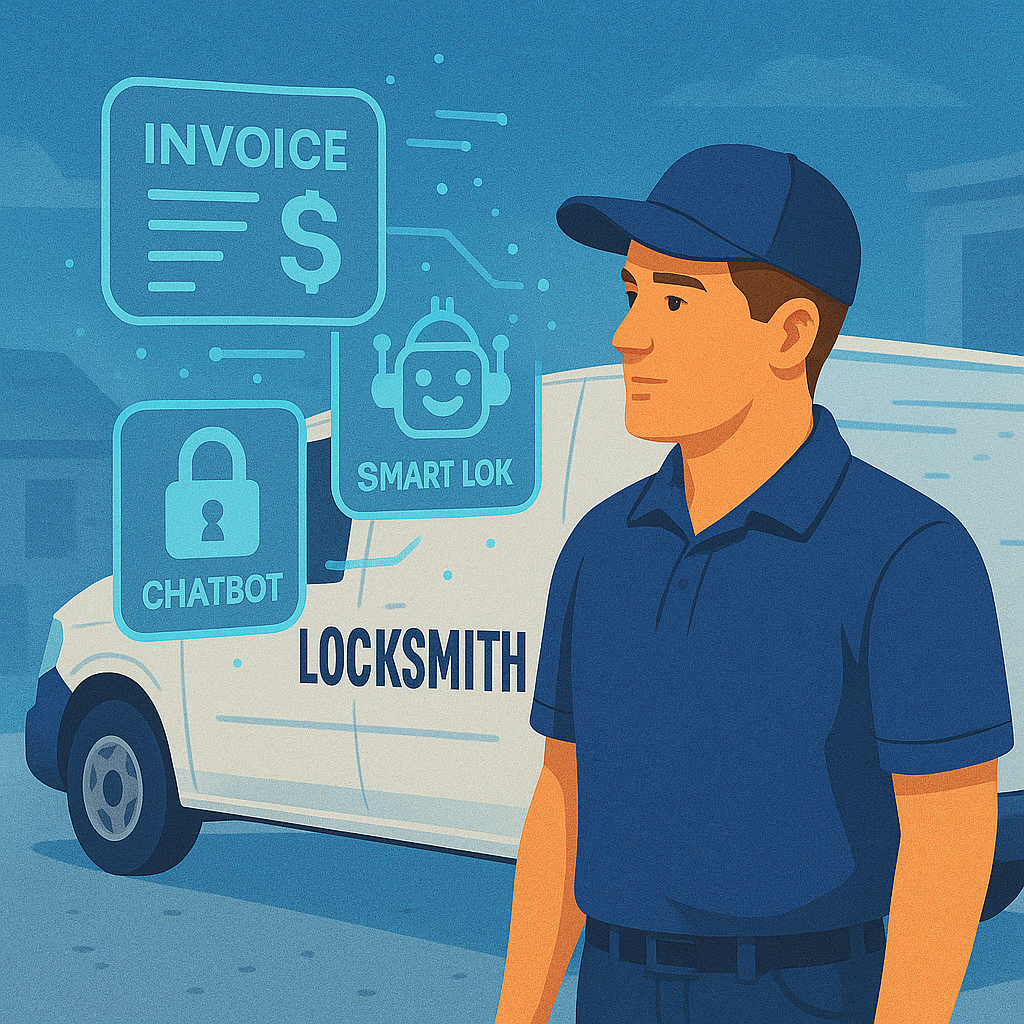
Job Scheduling and Lead Routing
AI scheduling tools automatically dispatch locksmiths based on urgency, proximity, and service type. For mobile locksmiths, this means fewer back-and-forth calls with dispatch and more time unlocking doors.
Voice and Chat Assistants
Many locksmith websites now feature AI chat assistants capable of fielding customer inquiries, gathering details about the issue, and booking appointments in real-time.
Voice assistants integrated with mobile apps also record job notes automatically, transcribe them, and attach them to invoices — replacing manual note-taking.
Smart Invoicing and Payment Collection
AI systems generate digital invoices the moment a job closes, automatically calculating mileage, service fees, and taxes. Payment links are sent instantly, cutting collection times dramatically.
The Broader Impact: AI as the Local Business Backbone
AI has gone from “nice-to-have” to “absolutely essential.” Local businesses that adopt it early are finding they can operate leaner, faster, and more accurately than competitors. For many, it’s not just about saving money — it’s about survival.
Here are some overarching benefits being reported across industries:
- 50–70% time reduction in administrative paperwork
- Improved customer response times due to automated communication
- Fewer human errors in billing, scheduling, and data entry
- Stronger online reputations through automated follow-up and review management
- Better decision-making from real-time analytics
AI tools are now the invisible assistants running local economies — allowing small businesses to operate with the sophistication of large enterprises.
The Future: Smarter, Simpler, and Even More Personalized
In the next few years, expect even deeper integration between AI and local business operations. The next generation of systems will combine AI scheduling, voice automation, CRM, and marketing into one unified dashboard.
Imagine this: a customer books an HVAC repair through a chatbot, the AI system schedules it, generates an invoice, updates the CRM, and sends a post-job review request — all automatically. That’s not a fantasy. It’s already happening for forward-thinking local businesses today.
AI is everywhere, and Local Business Is No Different!
Whether it’s drafting legal documents, routing a technician, or generating an invoice, AI has become the silent co-worker in nearly every modern business. Local companies that learn to embrace these tools aren’t just saving time — they’re building the foundation for smarter, more scalable growth.
The age of AI-driven local business has arrived — and it’s only getting started.

